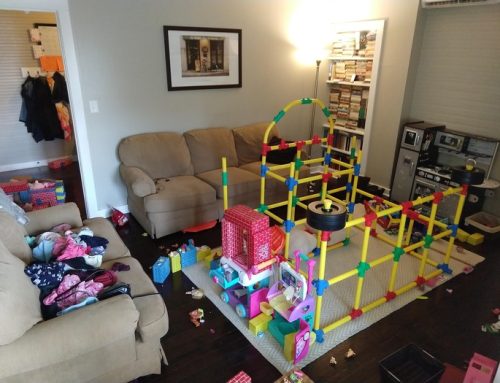The very first challenge in my book, You Don’t Owe Anyone, is to do nothing for 15 minutes. To stop all effort and simply be still, regardless of what your busy mind tells you that you “must” do instead.
It’s hard, yes, but it’s also the cure for much of what ails us. Doing nothing is a powerful antidote for the perfectionist poison we’ve been swallowing since childhood.
(Plus, as Dr. Martha Beck has taught me, doing nothing is a profound act of resistance in a culture that expects us to live as machines, not human animals.)
So nowadays when people decide to work with me in coaching, they know that I’m going to invite them to stop striving for a second and do the hardest thing for a recovering perfectionist to do: Nothing.
And with that, I bring you the sublime beauty of this email subject line (sent to me by a coaching client, and quoted with her permission): “Doing nothing wrong.”
She wrote: “I tried doing the 15 minutes of doing nothing but I can’t seem to do it right. How do I mentally SHUT UP and do nothing? Please help with that.”
What does a busy mind mean?
Since her mind wouldn’t be quiet, she thought that she was doing nothing incorrectly! But as any seasoned “nothing-doer” knows, the endless mental noise is just part of the experience.
What does a busy mind mean? It’s a mind that races, leaping from one thought to another, swirling like a load of laundry on spin cycle. In the Buddhist tradition, there’s a great term for this; it’s called the monkey mind.
The monkey mind is the part of you that’s constantly chattering, always moving from one branch to another. It’s restless, jumpy, and easily distracted by bananas.

Our close cousins, the monkeys!
What causes a busy mind?
It would be easy to blame the endless streams of social media, or the constant flow of email. It would be easy to assume that information overload causes our busy minds.
But while it’s true that modern life exacerbates mental chatter, it doesn’t cause it. How do we know this? Because we have ancient records, books, and scriptures, which show us that we have been struggling with our busy minds for a long time.
For thousands of years, wise folks have described the monkey mind as part of the human condition. So, in a nutshell, what causes a busy mind? Being human.
Apparently, Chinese authors during the Later Qin dynasty (384-417 CE) gave us the first known references to the “mind monkey.”
Across all religions, races, and cultures, the sages have told us the same thing: this monkey mind doesn’t represent the core of who we are. They’ve cautioned us against overly identifying with it.
Instead, they tell us, be still, and know that who you are is much more than the monkey mind. So naturally, what do we do? We avoid stillness like the plague!
Why do we avoid stillness?
Stillness is like medicine; it might taste bad or bitter at first, but then it helps us feel much, much better. Deep down, we know this.
However, we are really, really good at fooling ourselves. We say that we’re so busy, but what we really mean is that we’re scared to look at what’s beneath the busy.
Our frantic activity functions like a drug; it gives us a high and helps us avoid feelings we’re afraid to face. If that’s you, there’s no judgment here. We’re all on this journey together; none of us have it all figured out.
For example, recently I came to the end of a full week and realized that my body, mind, heart, and spirit were all deeply weary.
And when I sat with that feeling in meditation, it dawned on me that I’d been operating from a stressed-out, too-busy space in large part because I was scared to feel my own fatigue.
I’d been pushing myself to perform because I was afraid that if I didn’t, I might collapse with exhaustion. I didn’t want to worry about my health and energy levels, so I worried about my workload instead.
Of course, stressing out about work added to my fatigue in the long term, but in the short-term it gave me a convenient distraction.
What’s beneath the busy?
I had succumbed to the disease of being busy; I’d become disconnected from myself and my heart. “Busy” was the problem I created for myself to avoid dealing with the bigger problem. It was my substitute problem, my designated issue.
Once I faced up to my real problem, the solution was obvious: take lots of time for deep rest at the next opportunity.
Sure, my brain resisted … right up until my head hit the pillow. Then I fell headlong into a weekend of downtime: frequent naps, nourishing food, solitude balanced with quality time with my nearest and dearest.
By Sunday night, I felt like a new person … and I wasn’t worried about my to-do list any longer.
From now on, when we start to feel crazy busy, let’s not use that not as a signal to kick into high gear. Rather, let’s view it as an indicator that it’s time to take pause and ask, “Wait, what’s really going on here? What’s the deeper issue?”
The risk of not being busy
Almost everyone claims to want to slow down, but most people don’t. Why not? Because slowing down can make us feel really vulnerable, especially in the early stages.
In our secret hearts, we wonder, “If I slow down and make space to nurture relationships, will others join me?” In my experience, the answer is an emphatic yes … eventually. But the empty space in the middle can be tough.
When my husband Jonathan and I moved from DC to Alabama years ago, the biggest culture shock wasn’t the Southern accents, but rather, the less busy pace of life.
It was the stunningly slow turns that drivers made into parking lots. It was standing still at a four-way stop because everyone wanted to let everyone else go first.
(As a New Jersey native, both of these drove me crazy. Just go already! You could not get away with these shenanigans in New York!)
But the biggest change of all was the sudden halt of my own busyness. I went from a frantic lifestyle to a relaxed one. I went from thinking, “How can I fit a call into my schedule?” to, “I am not too busy to talk for an hour.”
And while the complexity of life here has increased since then, I’ll never forget those early days. I’ll never forget what it was like to be the new kid in town, to crave personal connection like bread and water.
Moving to Alabama meant going long-distance with every friend I’d ever made. It meant nurturing longtime friendships while building new ones. It also meant feeling lonely, and leaving many unreturned voicemails.
It meant seismic shifts to what Robin Dunbar terms my “layers of friendship,” with some cherished relationships strengthening and others dissolving.
Living a hyper-pressured life had made it easy to blind myself. “My friend and I are super-close; we’re just too busy to get together!” In some cases my friends had lived right around the corner, and still I’d told this story.
So often, “I’m too busy” is code for, “I don’t want to go there.” I don’t want to look too closely at that friendship, or that feeling.
Sure, many good friendships don’t involve regular contact. Sometimes you see beloved people once a year and that’s perfect.
But if you can’t seem to find a way to meet the people on Tier 1 of your life mountain when you live down the block from each other, then there is something else going on, something that busyness masks.
At the end of the day, you make time for what, and who, you value. So if you value your peace, you must make time to be still. And if you want to find your purpose, you start by subtracting, not adding.
How to calm the busy mind?
If you’ve ever tried to control a wild animal, then you understand just how hopeless it is to try and control your monkey mind.
But if control isn’t an option: How to calm the busy mind? You don’t. Instead, you simply witness it doing its thing. You let it be what it is, which is mostly nonsense. You embrace imperfection, relaxing into it.
If it helps, you can use this mantra, which tends to work well for me and my clients: There’s nothing to change, and nothing to fix.
And then one day you begin to notice that the nonsense is not you. It’s just noise. Who you are is the silence underneath the noise. Who you are is Stillness, something far more vast than you ever imagined.
The chatter of words, noise, and ideas can obscure the stillness, but ultimately, only the stillness remains.

Returning home to stillness
And if you’re like me and you want step-by-step instructions, here’s the full excerpt I mentioned from my first book, You Don’t Owe Anyone:
In this first (and perhaps most challenging) coaching exercise, I welcome you—the Try-Hard Champion—to do nothing, daily. You will be tempted to dismiss and avoid this invitation. Don’t.
Instead, set a timer for fifteen minutes per day, and just be. Just sit still and be present.
Some people call this meditation, but I follow the lead of master coach Martha Beck and call it “doing nothing” because it helps me release into rest.
Remember that you don’t have to be good at meditation. You just need to do nothing daily for at least one month and see what shifts in you.
If you’re not used to stillness, the first few sessions may feel just awful. You may have a twitchy, crawling-out-of-your-skin feeling; you may feel a strong compulsion to get back on your feet and do something—anything! If you can, sit with the discomfort. Breathe through it.
That said, if it feels too intense to sit still, you may need to release stored energy first. One great way to do this is to simply let your body shake. Let your limbs tremble in whatever way they need to.
(Personally, I find it easiest to shake my legs when I’m feeling too much charge, and I can do that even when I’m seated at my desk on a video call.)
If you want more detailed instructions, there are some great free resources available, such as this series of Trauma Release Exercises led by Dr. David Berceli.
You may find that the first five minutes of “doing nothing” are the hardest and that it gets easier to be still after that. Or you may find that doing nothing feels like an uphill battle the entire time. Stick with it anyway.
You are addicted to achieving, and you can go back to achieving when the fifteen minutes are up. But for now, you get to just be.
Often, clients will tell me that they don’t have time to do this. I can relate to that. There have been long periods of my life when I’ve believed that I didn’t have time to be still.
But what I’ve found is that, in the end, none of us have time not to be still. If we don’t slow down, we will invariably lose touch with who we are and drift off course from where we want to go.
When coaching clients come to me and say that they don’t know what they want or that they feel lost, the first question I ask is, “How much time do you spend doing nothing?” Usually the answer is “None.” Their frantic pace blocks access to their inner wisdom.
Many high achievers are scared to spend fifteen minutes in silence because they fear wasting time and losing productivity. In my experience, the opposite is true. If I take at least fifteen minutes to be still, I’m more focused, clear-headed, and present for the rest of the day.
So that’s my charge to you: Spend daily time alone, doing nothing. Drop your efforts and your expectations. You’re not doing this in order to get some grand spiritual epiphany. You’re simply turning down the noise and tuning into the truth of your own life.
Doing nothing wrong
If you practice doing nothing often enough, you may notice that – to speak in paradox – sometimes that Stillness speaks. Sometimes it whispers, “You’re doing nothing wrong.”
But it doesn’t mean it as a judgment. It means it as a mercy.
It means: “Honey, you’re fine. Right here, right now, you’re perfect. I love you.”
Yes, to our judging minds, this sounds crazy. Doing nothing wrong? Being perfect? That’s bananas!
But, when we go deeper into our loving hearts … when we remember how it feels to look at our sleeping child in their crib, or how it feels to have a loved one’s arms around us after a long separation …
Then, we remember what it’s like to love someone so much that the truth of their perfection is totally obvious. When we’re in the heart space, it’s not so crazy after all.
When I got that email from my coaching client, I could see both realities so clearly.
There was the reality of the judging mind, where we all fault ourselves (and others) harshly for what we apparently lack. Then there was the reality of the loving heart, the one where we’re actually whole, actually complete, right here in this moment.
And as I read that one line – “Doing nothing wrong” – it was clear to me that we get to choose. We get to decide which one we trust more: the judging mind, or the loving heart.
Make time to connect to yourself.
Enter your email address below to receive my special Sacred Circle Exercise, a step by step process to help you get in touch with what’s most important to you now, and free up time to devote to it.
Free Up Time to Pursue Your Purpose with the Sacred Circle exercise!
Share This:
Comments
Related Posts


